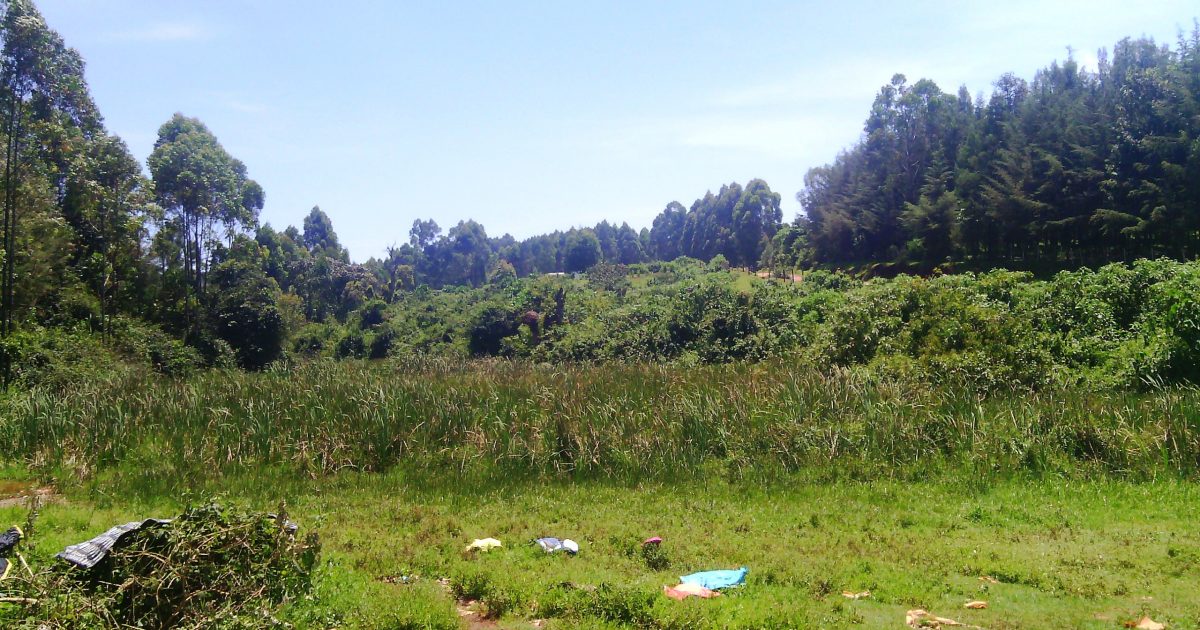A Kericho civic society group is expressing dissatisfaction with the enforcement of National Environment Management Authority (NEMA) laws in regard to environmental conservation in the county, calling for immediate action to protect the water resources in the area and mitigate on the negative impacts on the environment through awareness and sustainable practices.
The group urged the county government of Kericho to take concrete measures to address protection of water sources, deforestation and other environmental threats.
The Chairman of the Kericho Societies Organization Network David Ruto said delay in the implementation of the removal of the eucalyptus trees from water catchment areas is critical towards securing natural sources of water against extinction.
“About two years ago there was a memo from NEMA through the Ministry of Environment and Climate change that there was to be enforcement of the removal of eucalyptus trees from the river banks and this has not happened.
This is the third time in a decade, when these pronunciations have been made and people are planting eucalyptus along the river banks.
Let’s us plant other trees along river banks, but not eucalyptus, which sucks up the water. We are told the next world war will not be about resources, but it will be about water,” reiterated Ruto.
The eucalyptus tree takes a minimum of five years to grow and it poses a big threat to the environment and sources of water, amid environmental experts’ advice that their roots may suck water from far and deep.
He expressed fears that the ongoing demarcation of land in Chelimo area that is situated in the outskirts of Kericho town to the rightful beneficiaries for settlement by the Kericho County government might not incorporate environmental conservation measures against encroachment of river banks.
“Another very serious issue is the Lands and the Environmental departments are not working together, you will find that even in the new development in Chelimo we had proposed that 100 metres from the river should be adhered to, while settling the bona fide residents after the sub-division of Chelimo plots, but when we visited there recently they are measuring the land even up to the river.
There is no allowance for riparian land. We had proposed they should set aside ten acres, where we will plant 34 species of trees, so this will act as a preservation of these trees as well as protect the animal species there,” noted Ruto.
Ruto who doubles up as the Director of the Highlands Habitat conservation group said very little progress was being made to conserve wetlands, which were found along rivers and farmers were moving fast to extend their farms, without realizing the danger this posed to the natural resources.
He noted that residents should be educated on the importance of wetlands and all efforts should be done towards conserving them as they contributed significantly towards conservation of water and soil resources and they were homes to many birds and animal species.
“I think we have had two celebrations in Kericho to commemorate the World Wetlands Day, but not much is being done. There is no deliberate effort towards conservation of wetlands. Probably we have put the wrong people in offices. Residents are cultivating in wetlands and they have no clue why wetlands are there until the wetland dries up and is lost,” said Ruto.
Wetlands within Kericho County are mainly found along rivers notably Kipchorian, Kipturet, Timbilil, Chemosit, Ainamkoi, Malogit, Chebwagan and Kimugu.
He called upon the Kericho County government to make sufficient budgetary allocations towards environmental conservation and other related initiatives towards sensitizing residents on the need to protect their environment, all in a bid to promote sustainable practices and address environmental challenges in the area.
“People should be sensitized, they should start watching what is happening in the world, where there are some countries which are experiencing severe impacts of climate change for example India, Indonesia where they are having rising temperatures, water shortages and declining rainfall and countries like Canada, where there is increased warming.
The impact of climate change varies across countries and regions, but the effect is greatly seen in water resources, ecosystems and in agriculture,” said Ruto.
Meanwhile, NEMA laws are comprehensive and aim to protect the environment from various forms of pollution and degradation.
The key aspect of NEMA laws include noise regulation, environmental impact assessments (EIAs), Environmental Management and Coordination Act (EMCA) 1999, water quality regulations, biodiversity regulations, environmental licensing and permits and enforcement.
By Sarah Njagi




